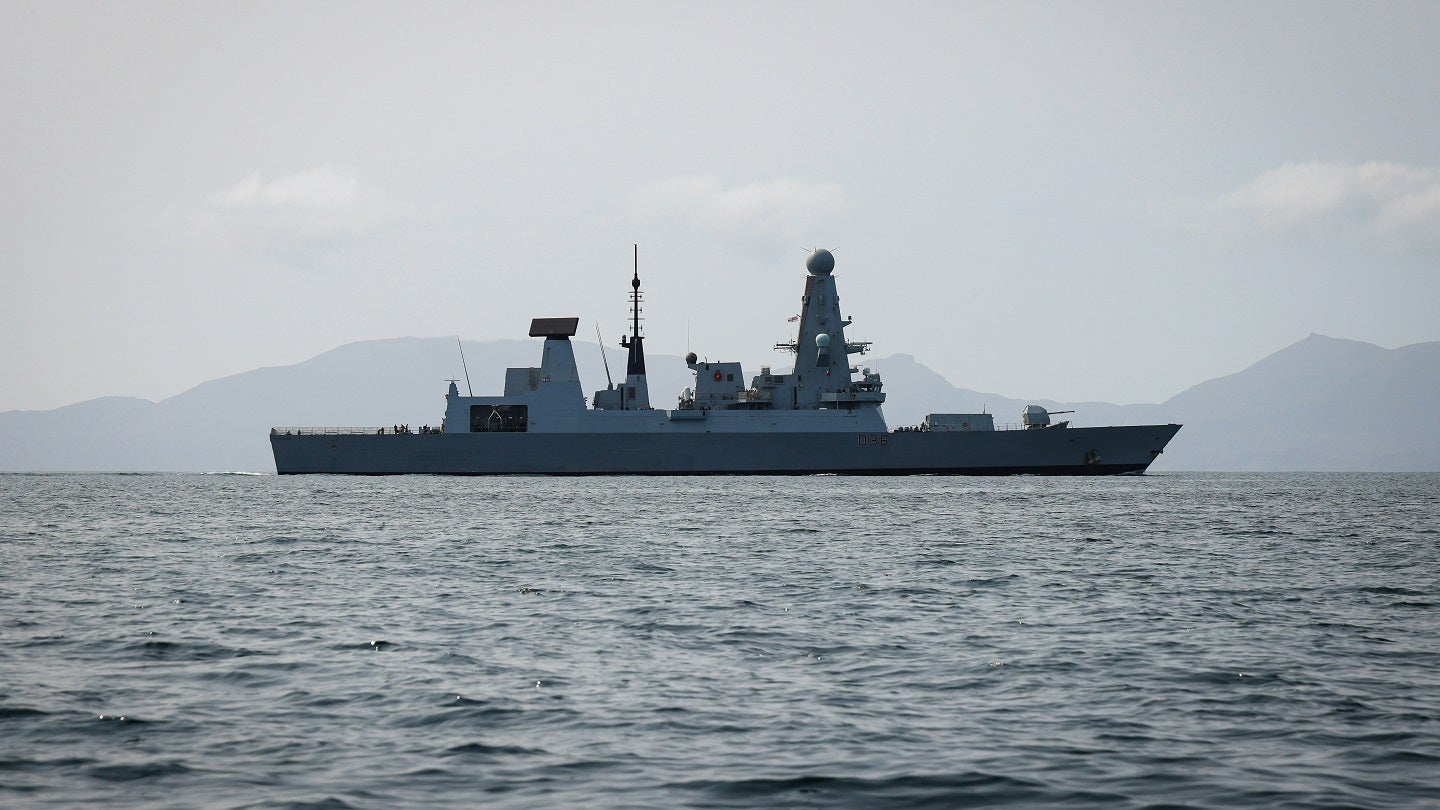
The refit of the UK Royal Navy’s Type 45 destroyer HMS Defender, which will see the integration of a 24-cell silo for the Sea Ceptor surface-to-air missile system and three new diesel engines under the Power Improvement Project (PIP), is projected to cost £68m, according to the latest figures.
The projected cost of the refit of HMS Defender was revealed by the UK Ministry of Defence (MoD) on 5 July, and comes in contrast to the cost of work performed during the life-extension programme for the Type 23 frigate HMS Iron Duke, which came it at over £100m.
HMS Defender recently returned to the UK after a decade of operations to begin the PIP process, which will see the vessel drydocked for two years for rectification and improvements.
Each of the six Type 45 destroyers in Royal Navy service will undergo the PIP and Sea Ceptor upgrades to add additional anti-air missile capability and rectify power generation problems for the class when operating in hot and humid climates.
In 2018 the UK MoD awarded an alliance team, led by BAE Systems, a £160m contract to upgrade and modernise the power and propulsion system installed on the Type 45 destroyers, with the aid of shipbuilding and conversion specialist Cammell Laird and naval design and technical support provider BMT.
Under the PIP, the Type 45s will see the replacement of the two existing generators with three larger units, which would include an additional diesel generator and the modification of the high voltage system on each vessel.
UK Type 45 PIP and Sea Ceptor Upgrade
| Type 45 destroyer | Upgrade status |
| HMS Daring | Ongoing |
| HMS Dauntless | Completed |
| HMS Diamond | Yet to undergo |
| HMS Dragon | Ongoing |
| HMS Defender | About to begin |
| HMS Duncan | Yet to undergo |
Utilising a novel hybrid electric drive system, the Type 45s have been beset by technical difficulties, with numerous instances of the vessels suffering electrical problems or even loss of power, particularly when operating in hot and humid temperatures such as found in the Middle East.
The installation of the new generators, which will see the vessels reorient to a more traditional diesel drive system, using the already installed gas turbine for sprints, requires drydocking and cutting into the hull.
As of early 2023, all six Type 45 destroyers will have completed the PIP by 2028. HMS Dauntless was the first to undergo the process, emerging in 2022, following by HMS Daring (completed in January 2023), with HMS Defender being the fourth vessel in the class to undergo the upgrade and rectification work. HMS Dragon is also undergoing the PIP process at the BAE Systems site in Portsmouth.
The two remaining Type 45s – HMS Diamond, and HMS Duncan – will each take their turn at Cammell Laird’s Birkenhead shipyard for the PIP programme and Sea Ceptor installation in the coming years.
The addition of a 24-cell Sea Ceptor farm, installed behind the 48-cell Sea Viper anti-air system, will see each vessel receive a 50% increase in embarked anti-air missiles.







